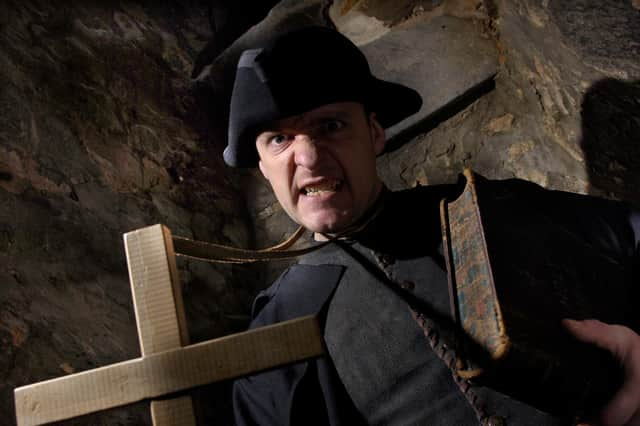Scotland's 'witches' were not usually mentally ill, but were tortured into delusions and false confessions – Dr John J Marshall


These ‘witches’ were brutally murdered, often by strangulation then burned. Some poor victims were still alive for their ‘quickin’ death, quickin meaning very much conscious in old Scots, far from merciful.
Scotland was a fanatical country in the 17th century, zealously pursuing women (in the main) for the crime of ‘witchcraft’. As the Enlightenment began to stem the flow of barbarity, it didn’t quite extend into isolated Galloway, where the savage killing continued.
Advertisement
Hide AdAdvertisement
Hide AdIt is essential to get the language right because writings on witches describe ‘trials’ and ‘executions’. In contrast, torture and murder of victims more accurately reflects this sorry period. The 'Witches of Scotland' group is now seeking pardons and a national memorial, but another wrong needs corrected, the assumptions of pre-existing mental disorders among victims, which underplays the role of torture.
Jonet McMuldritche was charged with using witchcraft to kill cattle, and somehow remotely 'murder' two men. Her first ‘victim’ had driven McMuldritche's cattle off his pastureland but she confronted him.
In the ensuing argument, she cursed him. Assertive women like Jonet were scapegoated. She had no mental health issues and did not prescribe potions, the traditional stereotype of witches.
Other accused women owned property or were victims of family feuds. Jean Brown in 1706 conversed with spirits and so was under “powerfull and satanicall delusions”, but her real crime was blasphemy. Brown refused to ask for repentance.
Women who threatened male power
Books on the history of psychiatry refer to idea that mental disorders were numerous among those accused of witchcraft and that their symptoms were misinterpreted during the prevailing demonology of the times.
The psychiatric interpretation is that 'mentally ill' people who may have experienced voice-hearing were misunderstood by the superstitious as under the sway of Satan.
However, the ‘witches’ were deprived of sleep, tortured and continuously pressured to admit to their satanic 'crimes'. These interrogations of even the healthiest of people would have led to confessional 'proof' and horrific punishment.
Confined, tortured and starved of sleep, anyone would experience acute hallucinations or delusions. In countries where torture was not widespread for witchcraft, confessions were less bizarre.
Advertisement
Hide AdAdvertisement
Hide AdThere are rare references to pre-existing symptoms of 'mental illness' among the accused. More often, the women were threatening male power, assertive and not easily cow-towed.
Magical thinking
The book Warriors and Witches and Damn Rebel Bitches shows how anyone could be named a witch by a woman seeking reprieve from torture.
Paradoxically, it was magical thinking on the part of male legal and ecclesiastical leaders that allowed them to ignore their own leadership failures.
Sometimes witch 'trials' tell us more about deviant fascinations of the accusers than the victims where ministers and elders were obsessed with fornication, adultery, swearing, drunkenness and punishing those working or enjoying themselves on the Lord's Day.
It is time to find an explanation for witch hunts that is located in a systemic perspective referencing culture, institutional failure and patriarchal power, rather than the characteristics or vulnerabilities of the victims who became the wretched focus of community discord and violence.
Dr John J Marshall is a consultant clinical forensic psychologist